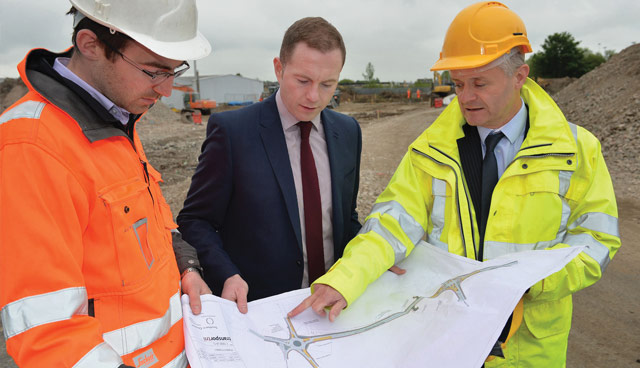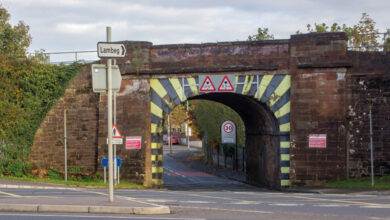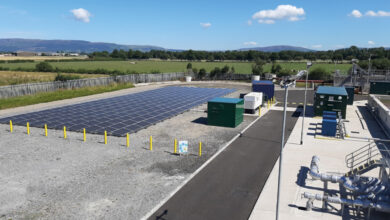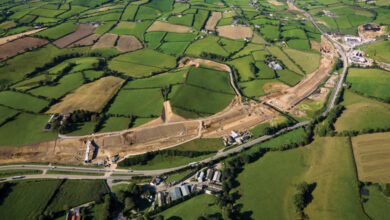The North West’s problem

Derry-based financial journalist Paul Gosling writes for agendaNi about the impact a failure of investment, including on infrastructure, is having on potential economic growth.
The North West has a problem — jobs, lack of them. Don’t get too obsessed with Northern Ireland’s much improved unemployment statistics. What matters more is the employment rate – the percentage of adults of working age who are actually working.
In the UK the employment rate is 75.6 per cent. Across Northern Ireland it is 69.7 per cent. In the Republic it is slightly less at 68.3 per cent. But in Derry City & Strabane the rate is a mere 56.8 per cent, which, as far as I can tell, is the lowest in the UK.
That is before the impact of Brexit. Just to ram the point home even more, the gap between Northern Ireland’s employment rate and that of the rest of the UK has actually widened since the Good Friday Agreement. Whatever happened to the peace dividend we expected?
So what drives employment? It is obviously a range of things. State investment, including spending on infrastructure and the location of government offices. Location decisions, also, by the private sector, which are influenced by factors such as access to market, the effective tax rate, availability of skills, productivity and local consumer demand. That local demand, in turn, is related to local income generation, which itself is related to productivity. Other factors include entrepreneurship and culture. It’s quite a long list and it is fair to say that Derry does not fare well with any of them.
Let us focus specifically on the issue of productivity. The UK itself lags on productivity – of the G7 major advanced economies the UK is a mere sixth. Yet, according to PwC, the UK as a whole is 15 per cent more productive than Northern Ireland, while the Republic is an impressive 60 per cent more productive than Northern Ireland. Ulster University produces a slightly different analysis – it calculates that Great Britain is 25 per cent more productive than Northern Ireland.
Thanks to the Office for National Statistics, we can break this down further in terms of Northern Ireland’s sub-regions. Belfast is 12 per cent below the UK average; the west and south of Northern Ireland are about 20 per cent below the UK norm; while the north of Northern Ireland is about 23 per cent below the UK average, which itself is a dullard in international terms.
So what drives productivity? According to the UK Government’s ‘productivity handbook’, there are five factors which are critical: investment; innovation; skills; enterprise; and competition. Again these are factors where the North West lags. The strategic growth plan from Derry City & Strabane District Council in effect recognises this: the plan focuses on skills and infrastructure, containing proposals for three major road schemes, plus improvements to the rail station, cross border public transport and rail connectivity and an increase in routes from the airport.
The situation on the roads is telling: a motorway from Belfast to Derry via Ballymena was planned in 1964, yet there is still no dual carriageway connection between Derry and Belfast (it is one of the few UK cities where this is the case), nor is there one planned even after the current A6 upgrade is completed – or the following one, which by-passes the town of Dungiven.
Before I moved to Derry, I lived in the English city of Leicester. From there I could travel the 100 miles to London by train in one hour, or the 70 miles to Sheffield in one hour and five minutes. The 70 miles from Derry to Belfast takes me two hours and 20 minutes by train or one hour and 50 minutes by bus. Travelling by car or van is not much quicker. The train journey from Manchester to Birmingham, 80 miles in one hour and 30 minutes, is regarded by the UK government as so slow that it is part of the rationale for spending £56 billion on HS2.
“It is still infrastructure that is one of the big constraints on productivity and it is productivity that drives higher incomes for people and businesses.”
Meanwhile, City of Derry Airport flies to the UK destinations of London Stansted, Liverpool, Glasgow and Edinburgh – the Executive was expected to approve subsidies for Manchester and Birmingham flight destinations, but it was suspended before agreeing the expenditure. For many destinations we have to travel to one of the Belfast airports and must leave between two and a half and three hours before the flight.
The significance of weak infrastructure must not be underestimated. Bad road connections make it slower to get goods to market, damaging productivity and competitiveness. Poor air route connectivity discourages investors, as do the other transport weaknesses. The electricity grid capacity can also be a challenge, Dale Farm has gone on the record saying it was encouraged to invest east of the Bann, because the electricity grid was better than in the west.
We in the North West are, however, a world leader in digital connectivity, with BT having provided comprehensive high speed, street level broadband connectivity as part of its sponsorship of City of Culture. This is complemented by the Project Kelvin transatlantic cabling, which provides an ultra-fast link between North America and Northern Ireland. (If only more were made, promotionally, of this.) It is no wonder that much of Derry’s economy is based around digital.
But, otherwise, the North West is seriously infrastructurally challenged. Infrastructure is not the only disadvantage for the North West – skills are equally important. We need more undergraduates to provide the graduate skills that local and incoming businesses need and companies are also shouting out for stronger vocational skills.
Yet, it is still infrastructure that is one of the big constraints on productivity and it is productivity that drives higher incomes for people and businesses, as well as investment. The failure to invest in the North West represents serious policy neglect. The pain of that neglect is not merely the lack of jobs and low pay, it also means a continuing fiscal deficit. If policy-makers want the North West to be generating tax revenues, the sub-region has to have the capacity, the infrastructure and the skills to be self-sufficient. Investment prioritisation is a matter for our policy-makers – if only we had some.






